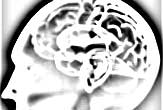Worrying Over Fading Memory Makes it Worse

Worried your memory will fade as you age? Don't think about it!
That's the advice from researchers at North Carolina State University who found such negative notions can foster a self-fulfilling prophecy.
Older adults who were told that older folks do poorly on memory tests indeed did worse than their peers, explained study leader Tom Hess. The reason: Cognitive resources are diverted from memory tasks to worrying about the negative stereotype, the researchers figure.
In fact, the effect may lead people to avoid memory tasks, allowing the brain to fall fallow and make the whole problem worse.
In this study and previous ones, performance by seniors on standard memory tests, such as recalling a list of words, fell 10 to 15 percent when thoughts of the negative stereotypes were activated, Hess told LiveScience.
"The assumption is that they are aware of the negative stereotype," he said in an email interview. "They may not necessarily buy into it, but the simple concern that they themselves might be stereotyped by others is thought to lead to the sorts of effects we observed as the individual becomes concerned about their performance, which may then have negative effects on behavior."
Study participants between the ages of 60 and 70 suffered more when these negative stereotypes were activated than seniors who were between the ages of 71 and 82. And the negative effects were strongest for those older adults with the highest levels of education.
Get the world’s most fascinating discoveries delivered straight to your inbox.
"We interpret this as being consistent with the idea that those who value their ability to remember things most are the most likely to be sensitive to the negative implications of stereotypes, and thus are most likely to exhibit the problems associated with the stereotype," Hess said.
The positive side of the study: The effects can be counteracted.
While dementia can be debilitating and for many people is irreversible and progressive, many studies have shown there are several ways for most people to help keep the brain sharp — from continuing education to improved diet and proper exercise.
And if you are confident that aging will not ravage your memory, you are more likely to perform well on memory-related tasks, Hess and his colleagues conclude.
Another suggestion: Don't shy away from memory-related tasks. In fact, as you age, Hess thinks it's wise to challenge yourself.
"Another common problem with negative stereotypes about memory is that they may lead older adults to shy away from situations that require use of their memory skills," he said. "There is emerging evidence that continuing cognitive activity in later life is beneficial in supporting cognitive functioning. If negative stereotypes prevent older adults from using their memory skills, such skills may be adversely affected through disuse."
There are, of course, limits.
"This research has specifically to do with the impact of stereotypes," Hess explained. "It does not deny that aging has negative impacts on memory, but it does suggest that there may be certain social factors that may negatively affect performance beyond what might be expected by the normal effects of aging."
The study, announced this week, was published online in the journal Experimental Aging Research.
- 10 Ways to Keep Your Mind Sharp
- Video: Night Shift May Harm Health
- More Brain News
{{ video="LS_090422_NightShiftHealth" title="Night Shift May Harm Health" caption="A small study of ten people has shown that when their sleep/wake schedule was inverted, their blood samples quickly showed symptoms that -- left untreated -- could lead to diabetes, obesity and cardiovascular disease. Credit: ScienCentral" }}
Robert is an independent health and science journalist and writer based in Phoenix, Arizona. He is a former editor-in-chief of Live Science with over 20 years of experience as a reporter and editor. He has worked on websites such as Space.com and Tom's Guide, and is a contributor on Medium, covering how we age and how to optimize the mind and body through time. He has a journalism degree from Humboldt State University in California.



